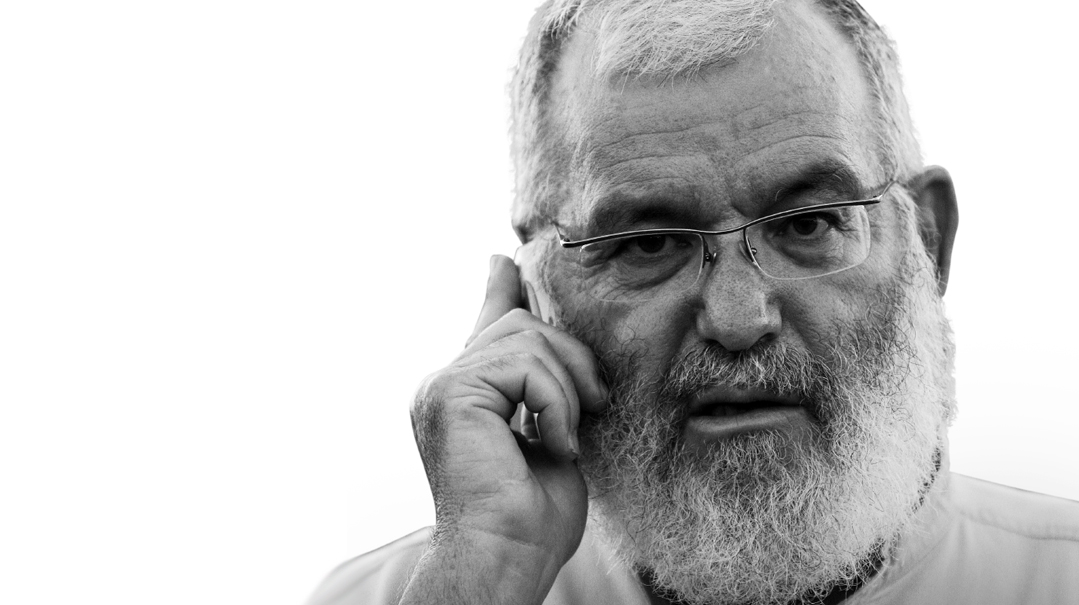Who Won the Gaza War?

Yaakov Amidror, former IDF major general and national security advisor to Binyamin Netanyahu, is now a senior fellow at the Jerusalem Institute for Strategic Studies

It’s just a few days since the guns of Gaza fell silent and normal life resumed on both side of the border, but both Israel and Hamas are deep into the effort to understand who won, and when the next round will be.
As veteran Gaza watchers assess the battle, one of the most authoritative Israeli experts — Yaakov Amidror, former IDF major general and national security advisor to Binyamin Netanyahu, now a senior fellow at the Jerusalem Institute for Strategic Studies — says that talk of winning the war is misplaced.
“The purpose of all the Gaza operations over the past 15 years has been to hurt Hamas and restore quiet to people living in the south — not to topple the terror groups or conquer the Strip,” says Amidror in a special interview with Mishpacha. “Israel didn’t embark on Operation Guardian of the Walls with the goal of winning. The goal was to inflict maximum damage on Hamas’s military capabilities, in hopes of establishing deterrence.”
But even as Israel tries to make Hamas think twice about starting up again, Amidror is unequivocal on one point: he says Israel should never forget that the thorn in its side to the south is nothing compared to the Iranian stake aimed at its heart from the north.
Did the Israel Air Force’s bombardment of the Gaza Strip not achieve its goals?
“Deterrence is individual matter. Every person decides for himself whether he’s deterred or not. For example, the Six Day War is considered Israel’s most successful war. But just three years later, there was the War of Attrition, and six years later, Israel found itself in the Yom Kippur War. So where was the deterrence?
“From a military perspective, the Second Lebanon War was a catastrophe, but the north has been quiet ever since. What this means is that it’s possible to severely damage Hamas and keep them from notching any successes. In the current round, Israel was able to deny Hamas success in most cases. Hamas didn’t catch Israel unprepared in any area — it failed to inflict significant damage, Iron Dome intercepted 90 percent of the missiles it was designed to, and Hamas proved unable able to land any blows by sea, air, or through the terror tunnels.”
How significant is the damage to Hamas’s “metro,” the terror tunnel network?
“When it comes to that, Israel managed to inflict very real and extensive damage to Hamas’s underground infrastructure. That caught them off-guard, because it was one of their most protected secrets. Israel has been working on this project since 2016…
“As for Hamas’s ability to create targets in the future, it’s clear that their best rocket and missile experts have been eliminated. Hamas’s production capacity was also hurt, and they’ll have a hard time rebuilding it at this stage. How badly was their infrastructure damaged, and will they be able to continue producing rockets? Only time will tell. At the same time, we inflicted only minimal damage on their launching capacity, and that’s one area where the IDF definitely needs to make improvements.
“Another place where Hamas was pounded was in the loss of key activists. The IDF has identified 135 dead terrorists. Among them were many middle-ranking commanders. It’s true that none of the Hamas’s top brass was eliminated in this operation — we didn’t reach them yet.
“Israel also failed to prevent missiles from being fired on most of the country, but it was well prepared with the upgraded Iron Dome system. Hamas failed to overcome Iron Dome. As I noted, the system stood the test: we’re talking about a success rate over 90 percent. On the other hand, and this should be emphasized, during this round Hamas learned that Israel has no answer to rocket fire on populated areas except Iron Dome. The significance of this is that Iron Dome is becoming an increasingly important element of our strategy. There are both positive and negative aspects to that.
“In summary, they notched zero successes and suffered a severe mauling. How severe? Even they don’t know yet. They’ll emerge from their hiding places, calculate their losses, and ask themselves if it was a price worth paying.”
About the strike on the “metro,” Hamas’s tunnel system—maybe we should have waited until more terrorists were in position there?
“The bombardment of the tunnel system had a decisive effect. In Hamas’s view, they’ve lost their secret weapon if Israel decides on a ground invasion of Gaza. It also has an impact on the public perception of Hamas within Gaza.”
The rocket fire on Jerusalem and the intensity and duration of the barrage didn’t take Israel by surprise?
“The prevailing opinion in Israel’s defense establishment was that Hamas had no interest in provoking an operation like this. Within Hamas there was an internal debate over whether it was worth it to seek a confrontation with Israel at this time. The militant view prevailed.
“As for the firing on Jerusalem, we had a very specific warning that it was going to take place. Prime Minister Netanyahu even warned MK Ben Gvir about that.
“If Israel was caught off-guard in any area, it was on the tactical level, not the strategic level. We were aware that Hamas had missiles that could reach Jerusalem. There was no weapon they used that surprised us.”
Do you still think Israel should prioritize the struggle with Iran over the fight with Hamas?
“Definitely. There’s no comparing between the two. Hamas is a much lower-grade threat than Hezbollah and Iran. I’m personally opposed to a ground invasion of Gaza. The damage we inflicted from the air was enough.
“The reason I’m opposed to conquering Gaza is because as soon as we’ve finished disarming the place — and I estimate that would take four years — we’ll be left with two million Palestinians amid the ruins. We’ll have to provide them with education, water, food, electricity. What do we need that for?
“Israel needs to reserve its real military might for the struggle with Hezbollah. On that front, it’s worth it to attack with large ground forces and take risks, with the aim of destroying Hezbollah. And the price will be heavy. I hope the decision makers will have the courage to make the right decision when the time comes for a decisive showdown with Hezbollah and Iran.”
There’s a perception that Hezbollah fears the IDF, which seems hard to say about Hamas.
“When it comes to precision, as well as the sheer number of rockets, Hezbollah is on a whole different level from Hamas. Its preparedness on the ground is also superior. Hezbollah has a disadvantage in that its forces are spread over a larger area, because Lebanon is a [relatively] big country. The IDF’s decisive superiority in armor will tell much more in Lebanon. Gaza is a crowded urban setting, so Israel can’t bring its armored superiority to bear there. The next war in Lebanon will be a serious one, with many civilian casualties, despite the fact that Iron Dome has been demonstrated to work fine.”
Is it significant that Hamas agreed to a cease-fire with Israel, while Islamic Jihad didn’t?
“There’s no significance to that. Islamic Jihad will fall in line with the wishes of Hamas — they’ll do nothing without the latter’s approval. The cease-fire will last as long as Hamas wants it to. The fact that Israel is dependent on Hamas’s whims is a real problem that we don’t have a solution for at the moment.”
How did violent riots burst out spontaneously in mixed cities across Israel? Was it organized?
“That’s a question that needs to be investigated in depth. Jerusalem is a sensitive place for Muslims, and events there sparked a wave of incidents. Hamas exploited the Jerusalem tensions, but it didn’t create them. There were a series of apparently unrelated events that dovetailed together.
“On April 3, PA chairman Mahmoud Abbas announced that he was canceling the Palestinian Authority elections. This caused deep frustration within Hamas, which hoped to win the elections and take over the PA.
“The same week saw the end of Ramadan. That’s a very delicate time that always sees commotion and riots. Meanwhile, on a separate track, the courts announced that the decision about the Arab families facing eviction from their homes in Sheikh Jarrah would be issued on the Thursday of the last week of Ramadan. No one bothered to look at the Muslim calendar and see that the timing was problematic.
“Add to all that the clashes with police in East Jerusalem, Jerusalem Day, and the Nakba, which is a day of mourning among the Arabs, because that’s when the State of Israel was founded. Everything that happened between April 30 and May 15 was a series of gas leaks just waiting for a spark to cause a chain reaction.
In recent days we’ve seen initiatives to try to restore harmony between Jews and Arabs in the integrated cities. Any chances of success there?
“Relations in the integrated cities won’t go back to what they were. There’s mutual distrust. I don’t think trust can be rebuilt in the near future because there was violence everywhere, even in cities where there were no provocations on the part of the Jews.”
(Originally featured in Mishpacha, Issue 862)
Oops! We could not locate your form.













